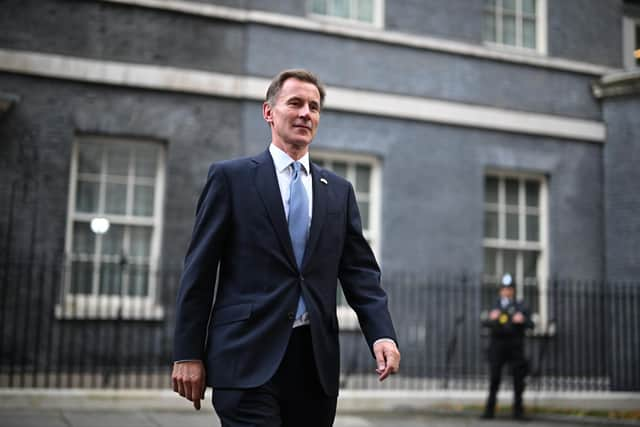Brussels Notebook: We know times are going to be tough in months ahead
and live on Freeview channel 276
We were warned we would be hit and we were through higher taxes, from frozen allowances as inflation rages, and most public spending frozen as costsrise.
This sign of the deep trouble the UK economy is in reflects the legacy of Liz Truss's disastrous policies. She has a great pension, while the rest of us pick up the bill for years to come.
Advertisement
Advertisement
She proved the adage that people are promoted to their level of incompetence through her efforts to please the Conservative party members that elected her and alone believed her economic plans made sense.Inflation topped 11 per cent this week, the highest level for over 40 years, led by higher food and energy costs. The UK is not alone is facing the twin problems of recession and inflation.


Many EU member states face the same problems, but the UK situation is worse. It is over-dependent on the retail sector, which is set to suffer from the slump in consumer spending from wages being squeezed and higher interest rates.
Its financial sector has been hit hard by Brexit and is struggling to remain competitive with others globally and in the Eurozone.
We know times are going to be tough; we know the UK recession will be worse and deeper than other countries.
Advertisement
Advertisement
The only unanswered question is the accuracy of the Bank of England claim that it will only last two years.Farming will feel the impact, given the impact of higher interest rates and frozen personal tax allowances.
However, it is better placed that other industries to face the economic woes that are here and set to get worse.
Agriculture does not soar when times are good, but it is better able than others to withstand recession.
It produces a product that people have to buy, regardless of their economic circumstances. In economist-speak the demand for food is inelastic, in that if prices rise or fall, people do buy more or less.
Advertisement
Advertisement
They change the mix between higher and lower value products, but demand stays largely the same.
Now is the time for UK agriculture to be seen to be on the side of consumers.
That means reassuring people about the security of the local food supply chain and making sure consumers understand that farmers too are victims of rising costs that are not being fully passed on.It is in all our interests that what was delivered by Jeremy Hunt as Chancellor this week works. There is no plan B and no alternative to the pain we face to get to better economic times. Hunt, this week, committed to the UK to continuing green policies, promising to go further and faster than others.
Both the EU and UK suffer from this green mist around economic plans, meaning it is more important policies are deemed green than effective. The UK then makes this worse by failing to see the potential farming could deliver, if freed of the green diktats increasingly central to the CAP. Brexit supporters promised we would escape these for a more dynamic future. Instead we have the same diktats, but without the financial certainty of the CAP's direct payments.George Eustice, the former DEFRA minister could never have been described as dynamic, but he at least came to the job with the benefit of knowing something about farming. Now out of the cabinet he let the cat out of the bag this week about the government's disastrous approach to trade deals. It has long been assumed in agriculture that these are about importing cheap food and freed of office, after ten years at DEFRA under Cameron, May and Johnson, Eustice described the Australia trade deal as a 'failure' for the UK. He laid the blame firmly at the door of Truss, while acknowledging his part in supporting a bad decision. Truss was the trade minister when the deal was negotiated. She and the government sought to put a post-Brexit gloss on its first big trade deal. But Eustice confirmed what farmers have long known to be the case – the deal gave away too much for too little in return.
Advertisement
Advertisement
The deal was deemed a blueprint for future trade deals. So, apart from coming close to bankrupting the UK economy with her disastrous policies as prime minister, it seems Truss left a legacy of an ill-conceived trade blueprint that will damage agriculture for years to come.